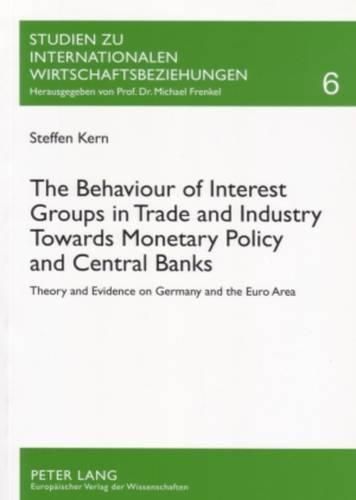Readings Newsletter
Become a Readings Member to make your shopping experience even easier.
Sign in or sign up for free!
You’re not far away from qualifying for FREE standard shipping within Australia
You’ve qualified for FREE standard shipping within Australia
The cart is loading…






This study investigates the behaviour of private interest groups towards monetary policy and central banks. It explores the extent to which interest groups seek to influence monetary policy and their motivations for doing so - or for refraining from doing so. Where evidence for interest group activity with respect to monetary decisions can be found, the study aims to identify the ways in which groups communicate with policymakers. The behaviour of interest groups in the area of monetary policymaking is investigated by means of an empirical case study of the relations between interest groups and the Deutsche Bundesbank in Germany as well as the potential impact of introduction of the single European currency and establishment of the ECB. The study evaluates the relevance of the institutional setting, policy issues and other factors.
$9.00 standard shipping within Australia
FREE standard shipping within Australia for orders over $100.00
Express & International shipping calculated at checkout
This study investigates the behaviour of private interest groups towards monetary policy and central banks. It explores the extent to which interest groups seek to influence monetary policy and their motivations for doing so - or for refraining from doing so. Where evidence for interest group activity with respect to monetary decisions can be found, the study aims to identify the ways in which groups communicate with policymakers. The behaviour of interest groups in the area of monetary policymaking is investigated by means of an empirical case study of the relations between interest groups and the Deutsche Bundesbank in Germany as well as the potential impact of introduction of the single European currency and establishment of the ECB. The study evaluates the relevance of the institutional setting, policy issues and other factors.